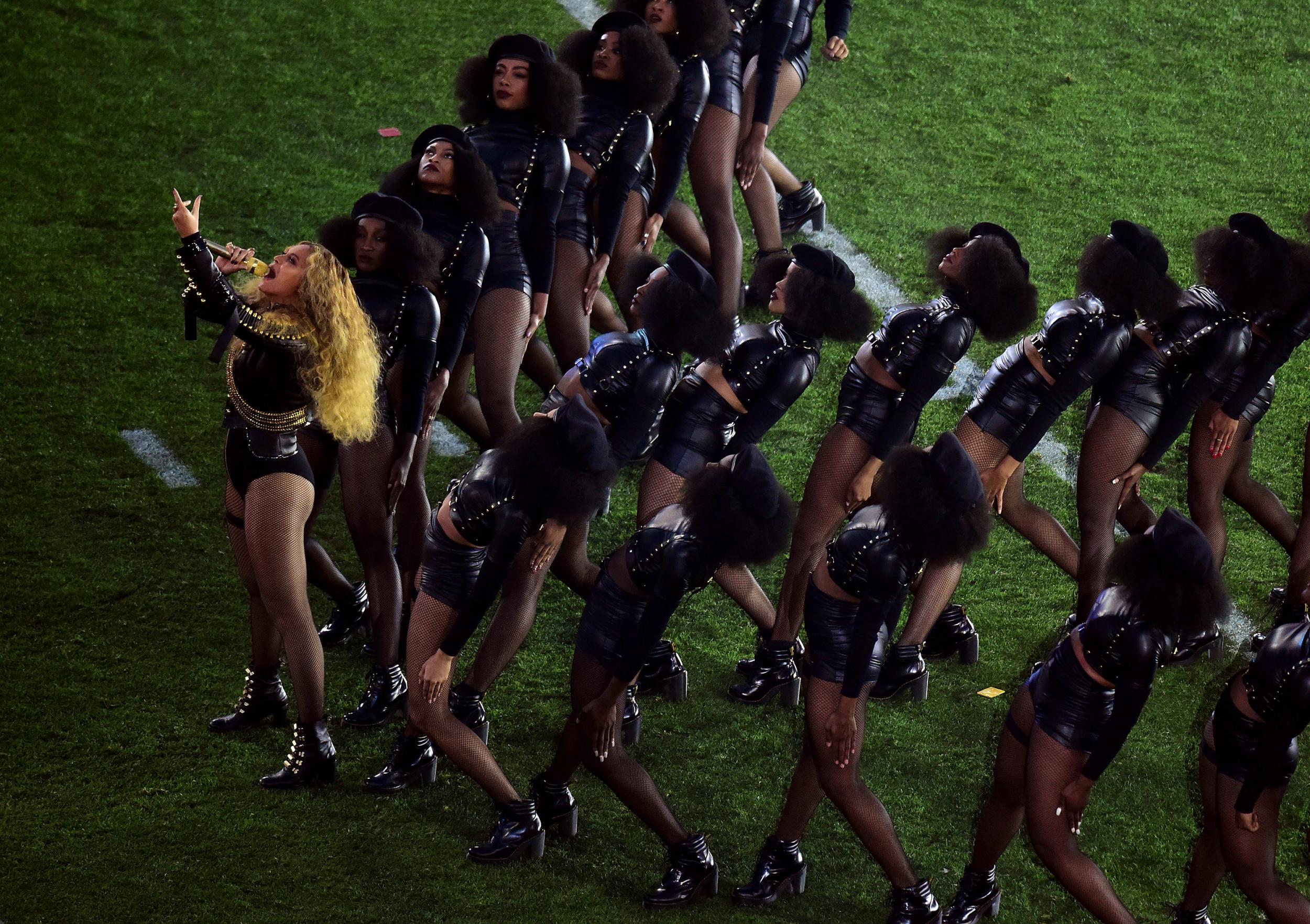Beyonce's Lemonade exposed the truth about who's really leading the cause for racial justice today
The most noticeable icons of black social justice might be Martin Luther King and Malcolm X, but the leaders and organisers of Black Lives Matter - and the people picking up the pieces after their loved ones are unlawfully killed - are always women

Your support helps us to tell the story
From reproductive rights to climate change to Big Tech, The Independent is on the ground when the story is developing. Whether it's investigating the financials of Elon Musk's pro-Trump PAC or producing our latest documentary, 'The A Word', which shines a light on the American women fighting for reproductive rights, we know how important it is to parse out the facts from the messaging.
At such a critical moment in US history, we need reporters on the ground. Your donation allows us to keep sending journalists to speak to both sides of the story.
The Independent is trusted by Americans across the entire political spectrum. And unlike many other quality news outlets, we choose not to lock Americans out of our reporting and analysis with paywalls. We believe quality journalism should be available to everyone, paid for by those who can afford it.
Your support makes all the difference.When Beyoncé’s Formation video dropped in February the debate quickly became about her support for black anti-racist movements, specifically Black Lives Matter. The release of the visual album Lemonade has explicitly continued that support.
With the inclusion of Malcolm X’s voice delivering a searing judgement that “the most disrespected person in America is the Black woman”, Beyoncé is clear about who this album is dedicated to: she’s thinking of her mother and her sister, but also black mothers and sisters in general.
US labour force statistics show that non-white women are disproportionately represented across domestic and care work sectors - so being a woman of colour means not only taking up work that actively supports the lives of men, but actively supports society as a whole.
Lemonade goes one step further and highlights a type of work even less recognised: fighting for social justice.
The mothers of Trayvon Martin and Michael Brown appear in the video shots of Lemonade, clutching pictures of their sons who were killed by an armed neighbourhood watch guard and a police officer respectively. They look undeniably affected by what they have been put through and the battle to get justice for their children. But still they look as though they won’t yield.
As the camera cuts between them and zooms in to frame their bodies, the short track Forward plays and then gives way to Beyoncé’s Freedom, a collaboration with Kendrick Lamar whose song Alrightbecame an anthem during the protests of Black Lives Matter.
Unlike the typical images that we have of Martin Luther King or Malcolm X, recent anti-racist protest movements heavily feature the leadership of black women, and often those who identify as queer. Patrisse Khan-Cullors, Opal Tometi and Alicia Garza founded the hashtag #BlackLivesMatter and developed infrastructure around it to make a movement. They represent just three of the many women who have spent the last few years campaigning tirelessly for racial justice.
All too often it is women who are forced to take up the mantle of campaigner and justice-seeker when the state - or a lone racist - kills their loved one. This is done often at the expense of their own time and space to grieve.
And this is true in the UK, too, where the United Families and Friends Campaign, an organisation that remembers and campaigns on behalf of many people who have died in various forms of state custody, is led by two women: Marcia Rigg and Stephanie Lightfoot-Bennett. The UFFC co-chairs both had brothers who died in police custody, but now campaign not only for their own justice but also on behalf of anyone who has faced a similar struggle.
Piers Morgan says that he “preferred the old Beyoncé” and that the singer now “wants to be seen as a black woman political activist first and foremost, entertainer and musician second.” This is a gross oversimplification. Lemonade shows Beyoncé willing to weave personal and political matters in far more creative and complex ways than Morgan seems to notice. Nor is it easy to separate Beyoncé the entertainer from her political work: her creative work is another expression of her political interests.
For some time, it has been standard to conceal the emotional and supportive labours of black women behind a veil of silence. The old Beyoncé may have been victim to this too, but that time is over now and she hasn’t hesitated in refocusing attention on the neglect we’ve shown to people in this section of our society.
Lemonade tells us to pay attention to those mothers, sisters, black and queer women who are fighting for justice unrecognised.
Join our commenting forum
Join thought-provoking conversations, follow other Independent readers and see their replies
Comments